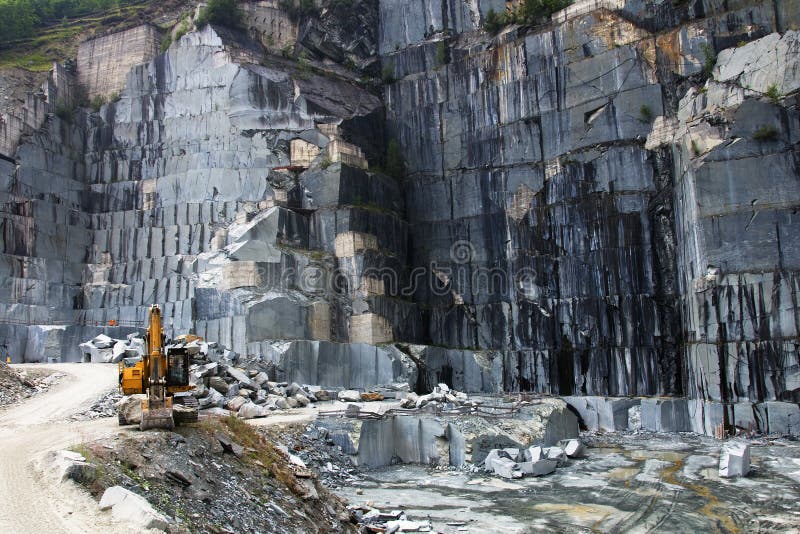Unearthing the Rich Background and Sustainable Practices of Granite Quarrying
As we depend on the precipice of discovering the intricate tapestry of granite quarrying, a trip through time exposes not simply the physical act of removing rock yet likewise the social and historic importance woven into the very material of this technique. From the ancient beginnings that laid the foundation for contemporary quarrying strategies to the sustainable methods that are forming the future of this industry, each carve mark on granite surface areas informs a story waiting to be discovered (granite quarries in south africa). The tradition of granite quarrying stretches much beyond mere extraction; it is a testament to human ingenuity, strength, and the enduring allure of this majestic stone
Ancient Origins of Granite Quarrying
Going back to old worlds, the method of quarrying granite has actually been an integral part of human history and architectural innovation. The earliest proof of granite quarrying go back to ancient Egypt, where huge pyramids and detailed sculptures were crafted from this sturdy stone. The Egyptians utilized primitive tools to extract granite blocks from quarries, showcasing the importance of this material in their significant buildings.
Progressing in background, the Greeks likewise made considerable payments to the quarrying of granite. The Greeks utilized granite in numerous building marvels, such as temples and sculptures, demonstrating their ability in shaping and carving this durable stone. The Romans further refined the techniques of quarrying granite, employing advanced devices like knives and hammers to remove and form granite for their famous frameworks.
With the centuries, the practice of quarrying granite has developed, with modern technologies enhancing performance while maintaining the ageless appeal of this natural rock - granite quarries in south africa. From old human beings to contemporary building contractors, the heritage of granite quarrying proceeds to shape our world
Advancement of Quarrying Methods
The advancement of quarrying methods has been noted by a constant progression in the direction of higher effectiveness and accuracy in removing granite. From the basic methods used by our forefathers to the advanced innovations utilized in modern-day quarrying operations, the sector has undergone substantial innovations. Early quarrying methods involved manual work with fundamental devices such as blades, hammers, and wedges to extract granite blocks from the planet. As worlds progressed, methods like fire-setting and primitive explosives were presented to help with the removal process.
In even more recent times, the development of equipment transformed the quarrying market, enabling quicker removal rates and boosted performance. Technologies such as diamond cable saws, high-pressure water jets, and pneumatic drills have ended up being basic in contemporary quarries, permitting accurate Extra resources cutting and lowered waste. Innovations in computer-controlled equipment and 3D modeling have enhanced quarrying procedures, leading to marginal ecological influence and improved sustainability practices. As the need for granite remains to rise, the advancement of quarrying techniques remains essential to meeting market needs successfully and sustainably.
Social Importance of Granite
Granite holds an extensive cultural relevance across different civilizations due to its long-lasting presence in building masterpieces and revered monoliths. The cultural relevance of granite extends past its physical features; it symbolizes strength, stability, and eternity, making it a symbol of sustaining heritages and traditions.

Lasting Practices in Quarrying
In the middle of the rich history of granite quarrying and its cultural value exists a growing focus on sustainable practices within the industry. As ecological recognition and issues about source exhaustion have enhanced globally, the quarrying field has actually progressively embraced lasting techniques to lessen its effect on the environment and bordering communities.

In addition, recovery and recovery of quarry websites post-extraction are indispensable to lasting techniques. By recovering quarried locations to a natural or advantageous state, such as creating wildlife environments or entertainment spaces, quarriers can balance out the environmental impact of their procedures and contribute like it positively to the neighborhood environment.
Tradition of Granite Quarrying
With a historical backdrop soaked in workmanship and industrial development, what enduring influence has granite quarrying left on the landscape of modern-day culture? The legacy of granite quarrying goes beyond mere removal methods; it has shaped building marvels, urban landscapes, and social heritage worldwide. The long lasting nature of granite has made it a preferred selection for monoliths, buildings, and framework, standing as a testimony to the skill and virtuosity of quarry employees across generations.
Furthermore, the financial impact of granite quarrying can not be neglected. The sector remains to offer employment possibilities and drive neighborhood economic climates in regions where granite removal is common. It has likewise spurred technical improvements in quarrying methods and equipment, bring about a lot more efficient and lasting techniques.
In regards to sustainability, the legacy of granite quarrying consists of initiatives to mitigate environmental influences through improvement projects and accountable source monitoring. By balancing economic rate of interests with ecological stewardship, the market aims to guarantee that future generations can proceed to gain from this enduring natural deposit.
Verdict

Comments on “A Journey Through Granite Quarries in South Africa: Introduction Nature's Virtuosity”